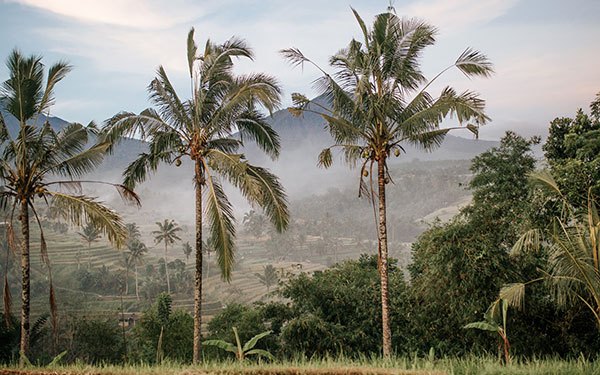Considering a move to Indonesia from the UK?
Want to live in paradise but think it’s an impossible dream? Think again.
The 17,500 tropical islands of Indonesia are expat heaven, boasting jaw dropping scenery, blissful beaches for lazy days, amazing weather, kicking nightlife, warm and hospitable people, low living costs, mouth watering cuisine, and a rich and diverse history and culture.
With all this to offer it’s no surprise that increasing numbers of Brits are choosing to make Indonesia their home.
If you want to find out more about the reasons to do the same and how to do it, keep reading…
Contents
Indonesia Visa Requirements for Brits
Let’s tackle the technicalities first by checking out the visa requirements for UK citizens wanting to move to Indonesia.
The good news is that the Indonesian embassy has introduced a new e-visa system which means that visas can now be applied for online.
Passports must always be valid for a minimum of 6 months from day of arrival…
Visiting
Visits to Indonesia of up to 30 days don’t require a visa.
If you wish to stay for a duration of 30 to 60 days however, you will need to apply for a tourist visa which can be done either online before departure from the UK, or more commonly on arrival at the airport (it is known as a Visa On Arrival).
This visa is valid for 30 days, but can be extended for a further 30 days by applying for an extension to an immigration office within Indonesia. Note that an extension will only be granted once. You may also be asked for proof of onward travel.

Working
Obtaining an Indonesian work permit (IMTA) requires you to have found an employer before leaving the UK who will act as your sponsor and seek approval to hire a foreign national.
Once approval has been obtained by your sponsor / employer you will be permitted to apply for a work permit tied into that particular job.
Foreigners in Indonesia are usually employed on a 1 to 3 year contract, so the length of time your work permit will allow you to stay will depend on the length of your contract.
On arrival in Indonesia you will also need to apply for a temporary residency visa — without it your work permit will not be granted.
The temporary residency visa or KITAS is renewed annually, and to obtain one your passport must be valid for at least 6 months longer than the length of the KITAS being applied for.
Permanent Residency
An Indonesian permanent stay permit is known as KITAP. It lasts for 5 years (after which time it can be renewed) and is available to expats who are retired and who are over 55 years of age and have already held a temporary residency visa (KITAS) for 4 years, or expats who have been married to an Indonesian spouse for more than 2 years and hold a KITAS, or those who have worked with the same Indonesian company for more than 4 years or who are investors, directors or commissioners in an Indonesian company.
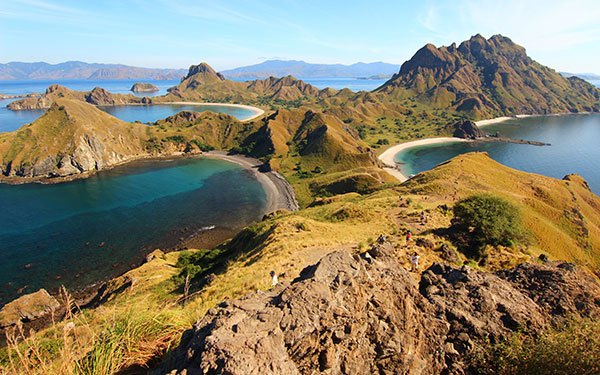
Way of Life in Indonesia
Lifestyle
With a long history of colonisation Indonesia is a melting pot of different cultures varying from one island to another, resulting in hundreds of local dialects being spoken, the most common of which are Bahasa Indonesia and Javanese — English is not widely spoken outside of the tourist areas.
Different religions are practised too, with Java being predominantly Muslim, and Bali mainly Hindu.
Jakarta and Bali are the most popular spots for expats to settle, but even in these most touristy areas the culture remains moderately conservative, and in areas where Islamic religion is dominant, women may find themselves having to adjust to sexist attitudes and having to dress appropriately (i.e. covered up).
The big cities like Jakarta are heavily westernised but offer fantastic employment and entertainment opportunities for expats, so although you will be expected to work hard during the week, wind down time is a whole lot of fun, with great bars, restaurants, nightclubs, and other activities on offer.
As an example of contrast, the island of Bali offers a mix of traditional culture, nature, laid back beach life, and more. Indonesian people are generally very friendly and helpful — particularly in more rural areas where there is a strong sense of community.

Sadly there is also a stark rich/poor divide in city areas so expect to see beggars on the streets and communities living in less than savoury conditions.
Love food? You’re in for a treat in Indonesia.
Food is an important part of the culture here, and families, friends, and colleagues gather to eat together to discuss anything and everything — making meals a major social event.
Most meals are based around rice and noodles — with a good dose of spice! Coffee is big business in Indonesia, and as a result there’s a vibrant cafe culture here with people gathering to chat, drink coffee, and watch the world go by.
Shopping is also a major social pastime here, and there is everything from excellent traditional markets to glittering modern high rise malls.
There are a huge number of other leisure activities for expats to enjoy too, including chilling on the beach, visiting museums and historical sites, losing yourself in nature at the stunning national parks, hiking volcanoes, diving and snorkelling to explore the colourful underwater world, and exhilarating water sports such as surfing and wind sailing.
One thing that Brits should be aware of is the risk of terrorism. Islamic extremist groups have made a number of violent attacks in recent years, targeting public and crowded places in the cities such as churches and police stations.
Getting Around
Being the world’s largest archipelago, Indonesia literally has thousands of islands to explore, and you can travel between the main islands by either taking a ferry or flying.
Air travel is by far the quickest and most convenient choice, and there are numerous budget domestic airlines selling inexpensive tickets flying routes daily.
If you’re flying out to one of the more remote islands, it’s worth bearing in mind that flights are less reliable, being prone to schedule changes and cancellations, and aircraft are often older and and limited on space.
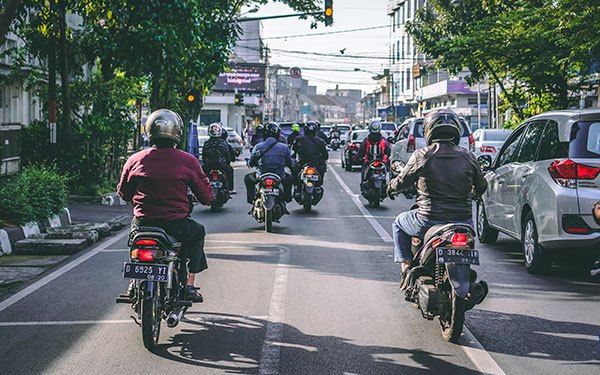
Air tickets can either be bought on the internet or directly at the airport, but as changes are common it is advisable to reconfirm your booking before you arrive at the airport, and to arrive early to make sure you get a seat.
If you’re travelling overland it is possible to travel by train, but only in Java and Sumatra where the national rail service (Kereta Api) connects major destinations and offers a comfortable a scenic way to travel.
In Java sleeper trains are available on long distance routes. Buses are another way to get around — at least in Java.
They’re cheap and fairly punctual, but very slow and often cramped, with a poor safety record to boot, so make sure you at least get a ticket for a luxury bus if you’re travelling long distance.
Minibuses are commonly used for local transport, and are cheap and relatively quick, but can be cramped. Motorbike ‘taxis’ are a good way to get around — particularly in areas with bad traffic as they can weave through the jams.
Be prepared to haggle to get a good price. Major cities have metered taxis which saves the stress of bargaining.
Driving in Indonesia
Indonesian cities can be very congested, so getting around by car isn’t your best bet.
However if you want to explore elsewhere under your own steam there are some important points to consider.
Road quality is often poor, streets can be cramped with cars and other vehicles parked up any old how, other drivers often have little respect for the rules, and people and animals just tend to wander into the road — all of which bumps up the likelihood of having an accident quite significantly, so it’s vital to remain vigilant.
That said, petrol is very affordable and vehicles drive on the left hand side of the road just like back home.
You’ll need both your UK driving license and an international drivers licence that has been issued in Indonesia, as well as appropriate insurance and registration documents if you own your own vehicle, all of which you should carry with you at all times.
Renting a car or motorbike is also an option, but you’ll still need to carry both driving licences and the car registration documents as spot checks by police are common. There are plenty of vehicle rental companies operating out of the main tourist locations.

Weather in Indonesia
Almost entirely tropical, the climate in Indonesia consists of high year round temperatures averaging out at a balmy 28°C, and both wet and dry seasons.
Due to the size of the country, weather and climate vary depending on location, but roughly speaking summers from May to September are hot and dry, and the months of October to April bring monsoon showers and storms which although often intense, tend to only last an hour or two.
Sumatra, west Java, Kalimantan and Papua are some of the areas with the most rainfall.
Highland and far inland areas are a little cooler than the coast, and mountainous areas are cooler still, with temperatures averaging 23°C.
Cost of Living in Indonesia
Overall the cost of living in Indonesia is low in comparison to the UK, but costs also vary depending on location, with rural areas being less expensive than cities.
As an added bonus if you land a job with an international company you will likely receive a good wage with allowances for things like healthcare, schooling for your kids, and accommodation.
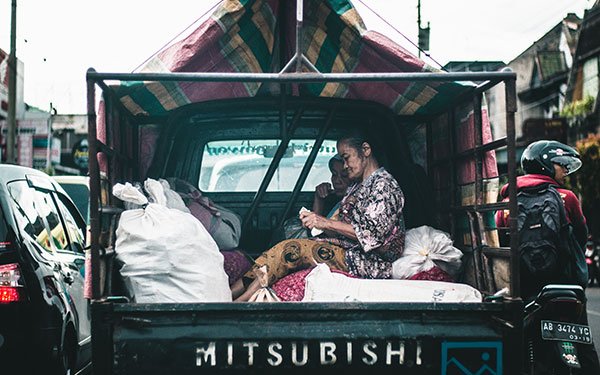
Let’s take a look at living costs in more detail…
Lifestyle
Groceries and clothes are significantly cheaper than back home provided you avoid the most expensive imported products.
Alcohol, on the other hand, can be more costly.
If you prefer to eat out it’s certainly not going to break the bank. A 3 course meal for two people at a good restaurant is unlikely to set you back more than £20, and eating out at a Warung (kind of like a cafeteria), street stall, or a really local place costs very little.
Take a look at this great video on the cost of living in Bali for a little taste:
Transportation including buses and taxis is also cheap, and if you decide to rent or buy your own vehicle fuel prices are as little at 50p a litre.
If you fancy a night on the town, entry to clubs and cinemas is cheap, but buying alcoholic drinks can take a bite out of your budget — stick to beer rather than wine if you want to keep down the costs.
Utilities are affordable — expect to pay anywhere between £50 to £80 per month for gas, electricity, and water combined in the city.
Rent
Even in major cities such as Jakarta, rental costs are low in comparison to the UK — more than 50% cheaper than London.
If you’re earning a good salary you will be able to afford luxurious accommodation, but even if your income is low it is still possible to rent a nice, basic apartment in a nice area.
Renting in smaller cities or more rural areas is cheaper still, with the possibility of having a nice, roomy apartment or house for as little as the equivalent of £180 to £350 per month.
Healthcare
Indonesia does not have the best public healthcare system. Standards vary and facilities are largely basic, with very few doctors and nurses speaking English.
On top of this, expats aren’t entitled to medical treatment under the Indonesian universal healthcare scheme, so even though they can be treated at a public hospital they still have to pay.
Expats are highly advised to take out private health insurance which gives access to better facilities and medical staff, and should also cover flying out to Singapore for top class treatment in the event of serious illness or injury.
The costs for private health insurance are dependent on your personal situation, but there are numerous providers so it should be possible to find a care plan to suit your budget.
If you have an international employer whilst working in Indonesia, try to make sure that private health insurance is included as part of your contract.
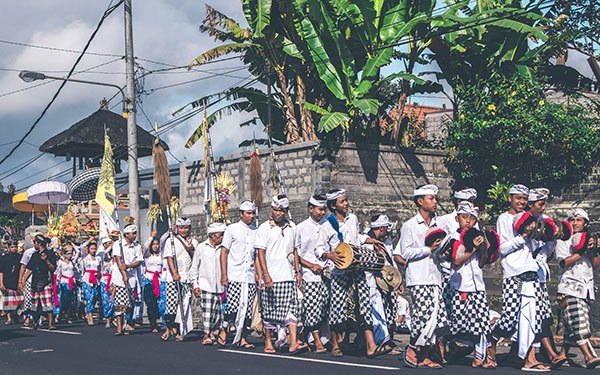
Schooling
As Indonesian public schools follow an Indonesian curriculum with lessons taught in Bahasa Indonesian, with a questionable standard of education, almost all British expats choose to send their children to international schools with a curriculum accredited by the authorities back in the UK.
Fees can be high however, costing anywhere between £2,300 and £25,000 depending on the school and the age of the child.
Popular Areas for Brits
Bali
Quite simply paradise on earth, the island of Bali is breathtaking, with beautiful beaches, ancient temples, lush paddy fields, rainforest jungles, world class diving and surf spots, and incredible arts and culture.
The Balinese people are deeply spiritual and truly lovely and guaranteed to welcome you warmly, the restaurants are second to none, and there are plenty of places to party.
Jakarta
Indonesia’s dynamic capital is urban jungle and cosmopolitan metropolis rolled into one.
It’s gritty yet constantly evolving, with a dynamic and diverse population.
Here the rich and the poor are juxtaposed, but this has given rise to a unique city filled with bohemian cafes, world class restaurants and incredible street food, countless shopping malls and hipster markets, a wealth of museums and a vibrant arts scene, and much, much more.
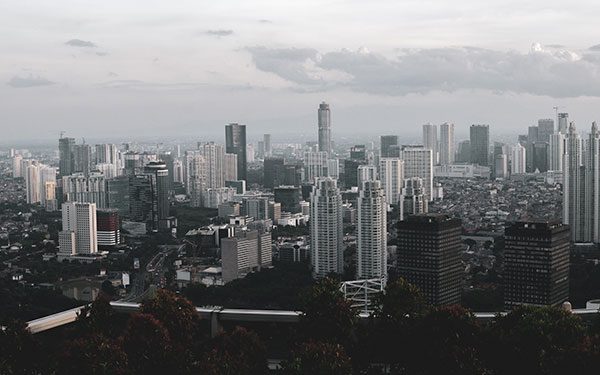
Surabaya
Founded over 800 years ago, Surabaya has built its fortunes on sea trade, and those cultural influences can be seen today.
East Java’s provincial capital has the largest and most authentic Chinatown in Indonesia, as well as an incredibly historic Arab quarter.
This industrial city offer up an intriguing mix of cultures and a thrilling blend of old and new.
Yogyakarta
Right in the heart of central Java, the ancient city of Yogyakarta is surrounded by many a mysterious myth.
Nestling between Mount Merapi and the Indian Ocean, it is fiercely traditional, and has for centuries been a seat of learning and source of inspiration for academics, artists, performers, and the spiritual.
Explore the walled palace where the sultan still holds sway, or one of the many Buddhist or Hindu temples.
Bandung
Set in a stunning natural landscape of volcanic mountains and tea plantations, Bandung is possibly the most chic city in Indonesia.
Its location offers up plenty of opportunities for nature lovers, and its bohemian vibe, vibrant arts scene, fabulous markets, crumbling art deco architecture, and dedicated cafe culture all add to its charms.

Batu
This small city in east Java is set low on the mountain slopes, and is known for its apple and tea plantations.
It’s a clean and pleasant city with a cool climate, and a very relaxing place to stay. Aside from offering some serious good hiking, Batu also boasts hot springs, good museums, and several amusement parks including a waterpark.
Indonesians come here to enjoy the peace and calm and get away from the heat and bustle of the city, but it is little known amongst foreign tourists.
Palembang
Founded in the 7th century, Palembang was once the capital city of the Buddhist Malay Srivijaya Kingdom, and is steeped in history.
With the Sungai Musi River running through its heart, modern day Palembang is rapidly growing. Take in the views on a river cruise, or indulge in some of the city’s infamously spicy local cuisine.
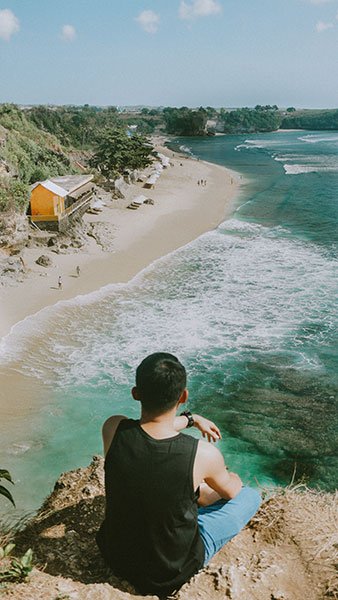
Jobs in Indonesia for British Expats
Thankfully Indonesia has a pretty healthy economy which is still showing significant growth, which is good news if you’re an expat wanting to work there.
Most expats working here are employed by foreign companies, with the majority of jobs being based in the big cities.
The Indonesian government gives preference to Indonesian applicants, which can sometimes be a bit of a challenge, but if you’re a skilled and experienced worker in a desirable sector such as electronics and manufacturing, textiles, gas and petroleum, or mining, you still stand a good chance.
If you don’t have a suitable skill set or much experience, there are other options — employment in the tourism sector and teaching English are some of the most commonly available jobs for younger or less skilled expats in Indonesia.
Whenever you can it is advisable to secure employment before making your move.
Still considering moving to Indonesia?

